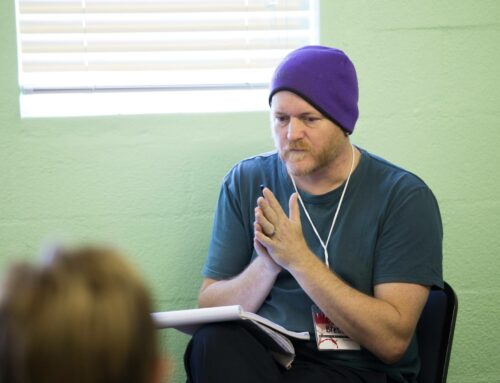busy reading ‘Exiles: Living Missionally in a Post-Christian Culture’ by Michael Frost and have little bits of paper and elastoplasts stuck within the pages where i really thort it was profound or spot on (if it was my book it would be folded pages but it’s not – it belongs to the theological library of stellenbosch which has absolutely no relevance so shut up already) and this was one of those pages:
From the chapter titled ‘Following Jesus into Exile’
‘Jesus humility is commended to us insofar as it is expressed in His commitments to identification and relinquishment. First, to follow Jesus’ example means that we should share His profoundly humble identification with sinful mankind (Phil 2.7b-8a). Second, those of us who wish to emulate Jesus should be aware of His equally humble willingness to empty Himself and make Himself nothing for the sake of God’s redemptive purposes (Phil 2.6-7a). The greatest example of both is His humiliating death on the cross (Phil 2.8b). To embrace an incarnational ministry, then, involves a willingness to relinquish our own desires and interests in the service of others. Of course, our suffering doesn’t atone for the sins of others, as Christ’s did, but our self-emptying or sacrificial love will direct people to the higher and more efficacious sacrifice of Christ. The exile will be called to also suffer, relinquishing wealth, worldly power, and position. Pity, condescension, or paternalism misses the mark; only a compassion that acts is acceptable in incarnational ministry. Thus, following Jesus’ example, incarnational Christian witness will include the following four aspects:
[1] An active sharing of life, participating in the fears, frustrations, and afflictions of the host community. The prayer of the exile should be, “Lord, let Your mind be in me,” for no witness is capable of incarnationality without the mind of Jesus.
[2] An employment of the language and thought forms of those with whom we seek to share Jesus. After all, He used common speech and stories: salt, light, fruit, birds, and the like. He seldom used theological or religious jargon or technical terms.
[3] A preparedness to go to the people, not expecting them to come to us. As Jesus came from the heavens to humanity, we enter into the “tribal” realities of human society.
[4] A confidence that the gospel can be communicated by ordinary means, through acts of servanthood, loving relationships, good deeds; in this way the exile becomes an extension of the incarnation in our time. Deeds thus create words.
So, if we take the incarnation seriously, we must take seriously the call to live incarnationally – right up close, near to those whom God desires to redeem. We cannot demonstrate Christlikeness at a distance from those whom we feel called to serve. We need to get close enough to people that our lives rub up against their lives, and that they see the incarnated Christ in our values, beliefs, and practices as expressed in cultural forms that make sense and convey impact.
When one theologian emailed me about what he believed to be my inappropriate use of the term “incarnational,” I replied by asking him what term he would use to describe the biblical, Christian impulse to draw near to those who didn’t know Christ, and for him to give me examples of how he did this in his own life and ministry. He didn’t reply. I’ve come to discover that there is a whole world of professional Christians who live primarily in the church or the Christian academy, and who determine what is the so-called true and proper terminology or the correct biblical procedure for mission, but who never seem to embody the ideas that they describe. On the other hand, there are theologically untrained people who are reading the Bible and intuiting new ways to create proximity with not-yet-Christians. These exiles often don’t feel appreciated or understood by the conventional church. They have been marginalised by their other Christian friends who thought their ideas or lifestyle too radical or too unsafe to accommodate. But they are on to something, and in their unorthodox practice reside the seeds of the survival of the Christian movement.’
i really really really like that, especially the four numbered points and the truth in this last paragraph… deeds thus create words. Mm. Yum






Good stuff dude. Been doing lots of thinking around this stuff lately, especially your point 3!